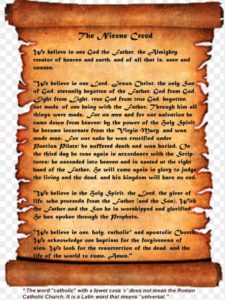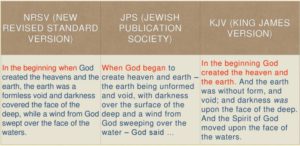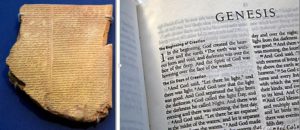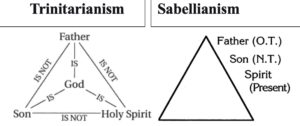
Nicene Trinitarian Theology: True God from True God; Of One Substance (Homoousios) with the Father
Kairos Podcast 6: Biblical-Nicene Trinitarianism vs Early Heresies. Part 5/6
Theology of the Nicene Creed (325 AD)
Note how the four clauses of the Nicene Creed specifically rebut Arianism.
1. TRUE GOD FROM TRUE GOD – He is also ‘true God’, i.e. not God in a secondary degree.
2. THAT IS, FROM THE SUBSTANCE OF THE FATHER added to give a more precise interpretation to BEGOTTEN FROM THE FATHER – “What we have here is a deliberately formulated counterblast to the principal tenet of Arianism, that the Son had been created out of nothing and had a beginning.”
3. BEGOTTEN NOT MADE – “The Arians were “eager enough to employ such language as BEGOTTEN, but the meaning they put upon it was indistinguishable from MADE… [The Nicene Creed affirms that] The Godhead had never been without His Word or His Wisdom: so the Father had never been other than the Father, and had never been without His Son. The Son and the Father must therefore have coexisted from all eternity, the Father eternally begetting the Son.” (ECD 237-238).
4. OF ONE SUBSTANCE WITH THE FATHER – “This asserts the full deity of the Son. “The Son, it implied, shared the very being or essence of the Father. He was therefore fully divine. Whatever belonged to or characterized the Godhead belonged to and characterized Him.” (ECD 238)
To ensure total condemnation of Arian theology, the anathemas were added to condemn phrases typically used in Arian catchwords or slogans. Continue reading “Nicene Trinitarian Theology: True God from True God; Of One Substance (Homoousios) with the Father”
 The standard translation takes Gen.1:1 to be an independent clause which refers to the absolute beginning of the universe: “In the beginning God created the heavens and the earth.” The word bərēʾšît (beginning) denotes the start of a whole sequence of events, that is, the absolute beginning of “the heavens and the earth.” The phrase is a rhetorical device (merism) which combines two extremes in order to refer to everything in between them. The translation is consistent with the idea that God created the whole universe ex nihilo.
The standard translation takes Gen.1:1 to be an independent clause which refers to the absolute beginning of the universe: “In the beginning God created the heavens and the earth.” The word bərēʾšît (beginning) denotes the start of a whole sequence of events, that is, the absolute beginning of “the heavens and the earth.” The phrase is a rhetorical device (merism) which combines two extremes in order to refer to everything in between them. The translation is consistent with the idea that God created the whole universe ex nihilo.

